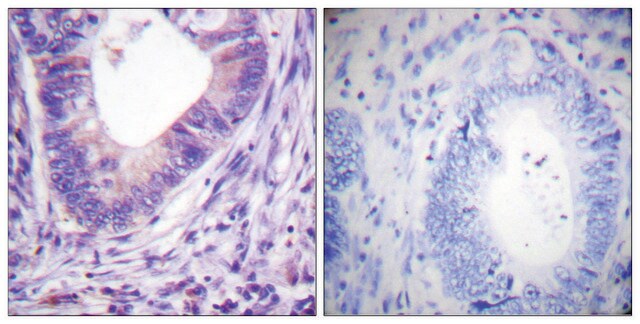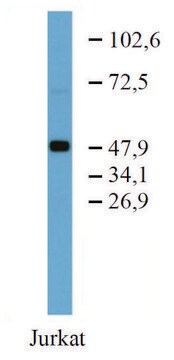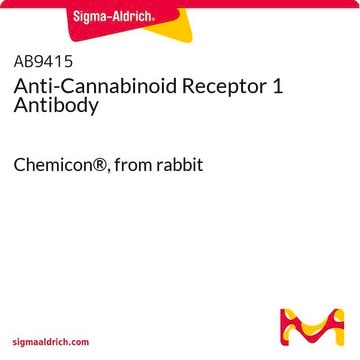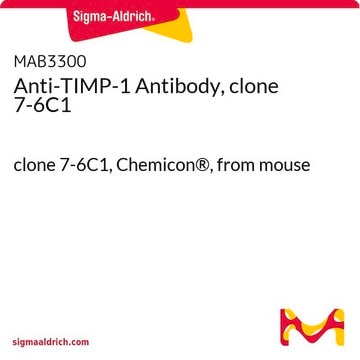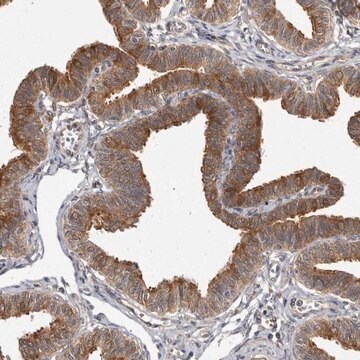HTS019RTA
Ready-to-Assay CB1 Cannabinoid Receptor Frozen Cells
Human
Sign Into View Organizational & Contract Pricing
All Photos(1)
About This Item
UNSPSC Code:
41106514
eCl@ss:
32011203
NACRES:
NA.81
Recommended Products
General description
EMD Millipore’s Ready-to-Assay GPCR frozen cells are designed for simple, rapid calcium assays with no requirement for intensive cell culturing. EMD Millipore has optimized the freezing conditions to provide cells with high viability and functionality post-thaw. The user simply thaws the cells and resuspends them in media, dispenses cell suspension into assay plates and, following over night recovery, assays for calcium response.
CB1 is a GPCR that is expressed primarily in brain and nervous tissue, and mediates numerous CNS responses such as analgesia, appetite, cognition, memory and locomotor activity. A number of cannabinoid ligands bind to CB1 and activate Gi/o-mediated downstream responses, including inhibition of cAMP production and activation of ion channels and MAP kinases. Such ligands include exogenous agonists such as 9-THC, the main psychoactive component of the plant Cannabis sativa, and endogenous agonists such as anandamide that belong to eicosanoid family. A number of synthetic agonists such as CP55940 and R-(+)-WIN55212, and antagonists, such as SR141716A, for CB1 have been developed (Howlett et al., 2002). CB1 agonists have clinical utility in analgesia and antiemetic properties, whereas CB1 antagonists show promise for treatment of appetite in obesity disorders. EMD Millipore’s cloned human CB1-expressing cell line is made in the Chem-1 host, which supports high levels of recombinant CB1 expression on the cell surface and contains high levels of the promiscuous G protein G15 to couple the receptor to the calcium signaling pathway. Thus, the cell line is an ideal tool for screening for agonists and antagonists of CB1.
CB1 is a GPCR that is expressed primarily in brain and nervous tissue, and mediates numerous CNS responses such as analgesia, appetite, cognition, memory and locomotor activity. A number of cannabinoid ligands bind to CB1 and activate Gi/o-mediated downstream responses, including inhibition of cAMP production and activation of ion channels and MAP kinases. Such ligands include exogenous agonists such as 9-THC, the main psychoactive component of the plant Cannabis sativa, and endogenous agonists such as anandamide that belong to eicosanoid family. A number of synthetic agonists such as CP55940 and R-(+)-WIN55212, and antagonists, such as SR141716A, for CB1 have been developed (Howlett et al., 2002). CB1 agonists have clinical utility in analgesia and antiemetic properties, whereas CB1 antagonists show promise for treatment of appetite in obesity disorders. EMD Millipore’s cloned human CB1-expressing cell line is made in the Chem-1 host, which supports high levels of recombinant CB1 expression on the cell surface and contains high levels of the promiscuous G protein G15 to couple the receptor to the calcium signaling pathway. Thus, the cell line is an ideal tool for screening for agonists and antagonists of CB1.
Cell Line Description
GPCR Cell Lines
Host cells: Chem-1
Biochem/physiol Actions
GPCR Class: A
Protein Target: CB1
Target Sub-Family: Cannabinoid
Components
Pack contains 2 vials of mycoplasma-free cells, 1 ml per vial.
Fifty (50) mL of Media Component.
Fifty (50) mL of Media Component.
Storage Class
10 - Combustible liquids
wgk_germany
WGK 1
flash_point_f
Not applicable
flash_point_c
Not applicable
Certificates of Analysis (COA)
Search for Certificates of Analysis (COA) by entering the products Lot/Batch Number. Lot and Batch Numbers can be found on a product’s label following the words ‘Lot’ or ‘Batch’.
Already Own This Product?
Find documentation for the products that you have recently purchased in the Document Library.
Cannabinoid receptor 1 antagonist genistein attenuates marijuana-induced vascular inflammation.
Wei, et al.
Cell, 185, 1676-1693 (2023)
Our team of scientists has experience in all areas of research including Life Science, Material Science, Chemical Synthesis, Chromatography, Analytical and many others.
Contact Technical Service